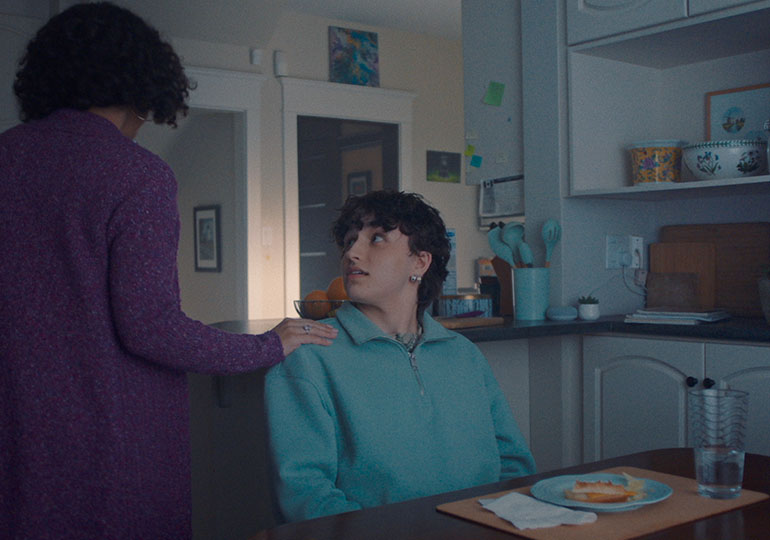Are you wondering if you might be in a healthy relationship or an unhealthy relationship? In healthy relationships between intimate partners (however you define them), everyone can feel safe, respected and accepted for who they are. In unhealthy relationships, a partner may feel anxious, confused, uncertain, guilty, ashamed and even unsafe. Knowing about some of these differences may help you choose who you’re in a relationship with and for how long.
In this article, Kids Help Phone shares some signs that may help you recognize healthy and unhealthy aspects of relationships and a few tips for navigating arguments. You may find that your relationships have signs of both a healthy relationship and an unhealthy relationship. And you may or may not be able to address some issues to turn an unhealthy situation into a healthy one — your physical and emotional safety are a priority. Relationships are ever changing and each situation is unique. We invite you to use the information on this page as a resource as you continue to navigate relationships in your life.
If you think you may be in an unhealthy relationship, are having trouble navigating an argument in your relationship or are in need of support in any way, you can connect with Kids Help Phone’s e-mental health services 24/7. If you feel like you’re in a crisis, emergency services are available across Canada. Mobile crisis support and other community services are also options in some areas. You can search Resources Around Me to find what’s best for you and available nearest your location.
What are some signs of healthy relationships?
No relationship between partners is the same. But there are some common elements of relationships that can help us decide if they’re healthy for us, including:
Equality
The relationship is safe and fair. For example, being equal in a relationship means sharing the power, not bossing each other around. Equality can also mean sharing the effort. For instance, if you text / call a partner often, and they don’t seem to have time for you, the relationship may be unequal.
Honesty
You feel comfortable talking about things in a relationship with a partner, including issues / concerns.
Knowing you can be yourselves
You feel comfortable around the person(s) you’re in a relationship with. Changing yourself (e.g. the way you dress, talk, behave, etc.) to please someone else often doesn’t work in the long term. This can affect your relationships with your friends / family as you may feel isolated or placed in the middle between them and a partner. Some people call this a “conflict of loyalties.”
Open communication
You discuss things that are important to you and your relationship with your partner(s). You ask each other what you’re thinking and feeling, and you listen to each other.
Respect
You support and are considerate and kind to each other. You listen to one another’s concerns. You also respect yourselves and say “no” to things that make you feel uncomfortable.
Safety
If you feel threatened in any way, it’s not a healthy relationship. Feeling safe is both emotional and physical. Knowing that a partner won’t try to hurt your feelings or your body is a sign of safety.
Support
You feel cared for and encouraged. In healthy relationships, partners listen to each other, help each other with concerns and show support (e.g. by attending important events for one another, etc.).
Trust
You’re able to depend on your partner(s) when you need to. Trust is about believing that someone will be honest with you and follow through on their promises. When you trust someone, you know they’ll support you. You keep each other’s best interests in mind.
What are some signs of unhealthy relationships?
While disagreements / arguments may happen within all relationships, when a person starts to feel insecure, scared, etc. within a relationship, this may be a sign that it’s not healthy. More signs of an unhealthy relationship may include:
Blame
A partner places the cause of negative aspects of a relationship solely on you. A partner may express blame in the form of guilt if they say your behaviour is the cause of negativity. A partner may express blame in the form of shame if they say your personal characteristics are the cause of what’s wrong in a relationship.
Control
A partner tells you what to do, what to wear, whom to spend time with, etc. They constantly check up on you and / or use threats (e.g. say they’ll hurt themselves or you, etc.) to try to make you do things.
Gaslighting
Gaslighting means a partner continually undermines your perspective by denying facts, situations and / or your feelings. This can result in you doubting yourself and feeling less confident. People may use gaslighting (info from Western University) to gain control / power over a partner.
Humiliation
A partner calls you names, puts you down, embarrasses you, etc. in front of others.
Physical abuse
A partner uses physical force against you (e.g. pushes you, hits you, throws objects at you, destroys your things, etc.). Physical abuse is never OK in any relationship.
Pressure
A partner tries to force you to do things you don’t want to do or aren’t ready for, including sexual acts, substance use, etc. They don’t take “no” for an answer and may use threats (e.g. say they’ll leave the relationship, etc.) and / or ultimatums (e.g. say you have to choose between them and your friends, etc.) to try to make you say “yes.”
Threats
A partner tells you they intend to cause you, themselves and / or others physical, emotional, social, spiritual, financial or other forms of harm. This can include them threatening you with their own death by suicide.
Unpredictability
A partner gets angry easily and you don’t know what will set them off. You feel like you’re constantly trying not to upset them.
Some signs of an unhealthy relationship may be abuse. If you’re experiencing physical, emotional and / or sexual abuse, there are ways to get support and make a safety plan.
How might I navigate arguments in relationships?
It’s common (and even healthy!) for partners to argue (respectfully) from time to time. Disagreeing gives you a chance to explore different perspectives and can be an opportunity to express your feelings. It can become a concern if you’re fighting all of the time, or if one partner is always hurting another partner’s feelings. Physical fighting (e.g. punching, hitting, scratching, etc.) is never OK and is not a part of a healthy relationship.
What are some tips for fighting fair in relationships?
Ask yourselves why you’re upset
Before you begin an argument, think about what you’re feeling. This can help you understand what you want to talk about with a partner and what you hope to achieve within the conversation.
Think before you react
Give yourself some time to reflect before you respond to a partner in person, press “send” on a message, etc.
Try to stay calm
Try to speak as calmly as possible during a conflict. Try not to raise your voice, talk quickly and / or use big gestures, as these behaviours might feel threatening to a partner.
Kids Help Phone is here if you’d like some help to navigate how you communicate and have tough conversations.
Explain how you feel
Even if you’re the one who’s been wronged, it can be more helpful to explain how you feel than to blame / accuse a partner. For example, it may be helpful to say, “I felt hurt and embarrassed when you did that,” rather than, “You made me seem like I didn’t know what I was doing.”
Address the main issue
Focus on the concern, not the person. Discuss what you’d like to change and aim for a way forward rather than “winning” an argument.
Try to compromise
There may not be an ideal agreement for you and your partner(s), which may mean you need to find a compromise. Try to search for a way forward that works for all partners. This may involve each person giving something up. Some people call this “give and take.”
Take turns talking
If you’re interrupting / thinking about what you want to say while a partner is talking, you may not be listening fully. You could try setting a timer to allow each person time to talk if you find you’re constantly interrupting each other.
Discuss one issue at a time
Sometimes, a fight about one thing can lead to another, and the conversation can get off topic. Try to stick to addressing one issue at a time. This can be more productive than arguing about everything a partner has ever done wrong.
Avoid insulting language
Put downs, name-calling and swearing can lead to attacks of character and take your focus away from the issue you’re trying to address.
Try to be respectful
Think about how your words / actions could affect someone / cause harm. Avoid sharing hurtful comments in person, on social media, etc.
Avoid refusing to respond
Ignoring someone often leaves an issue unresolved. If you need a time out, take one, and agree to come back to the discussion later.
Aim for understanding (especially if you can’t compromise)
If you can’t come to an agreement, you can still make an effort to understand each other to help manage any uncomfortable feelings.
Give space
When emotions are strong, you can take a break. You may suggest that you talk about it in a few hours or after you’ve had time to calm down and think things over.
All relationships are different, and each relationship has its own challenges to navigate. If you’re concerned that you / someone you care about may be in an unhealthy relationship, Kids Help Phone’s e-mental health services are open 24/7 to help you work through whatever issue(s) you may be experiencing, no matter how big or small it may seem.























